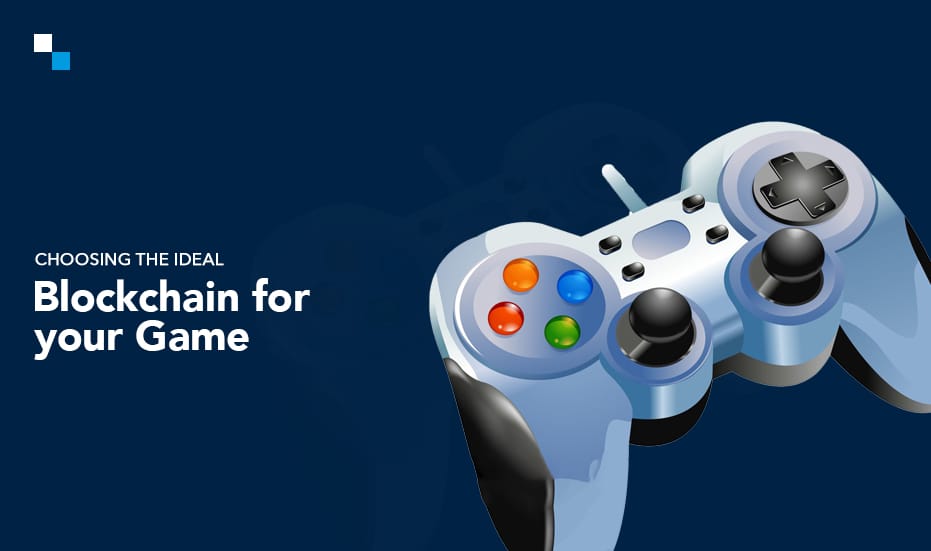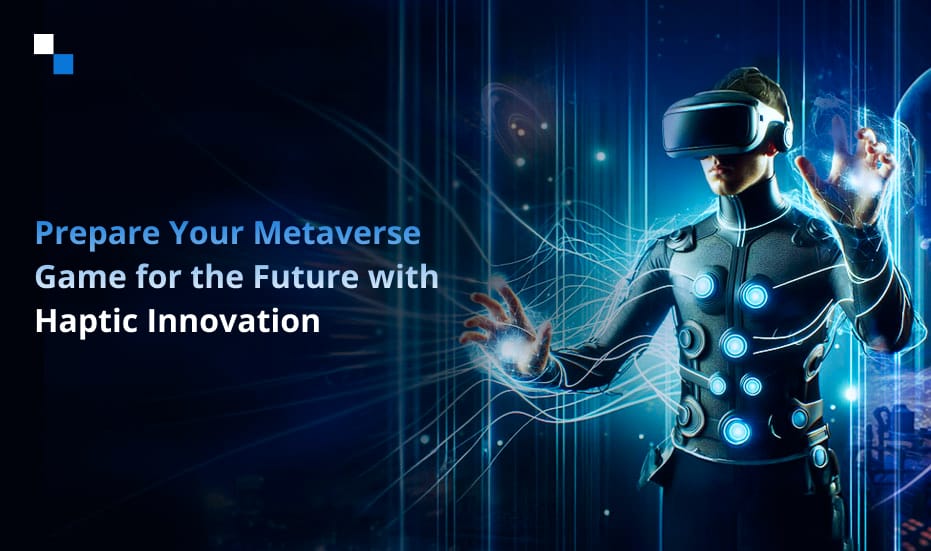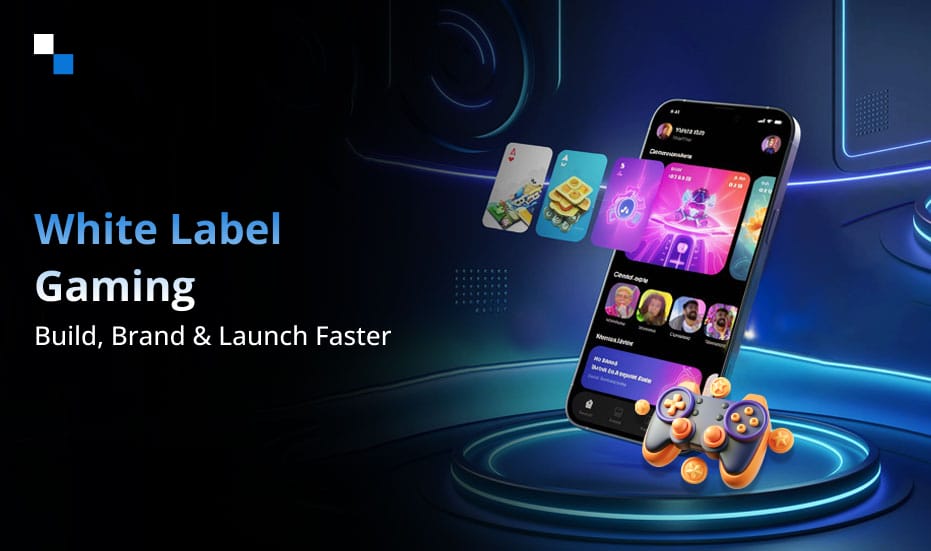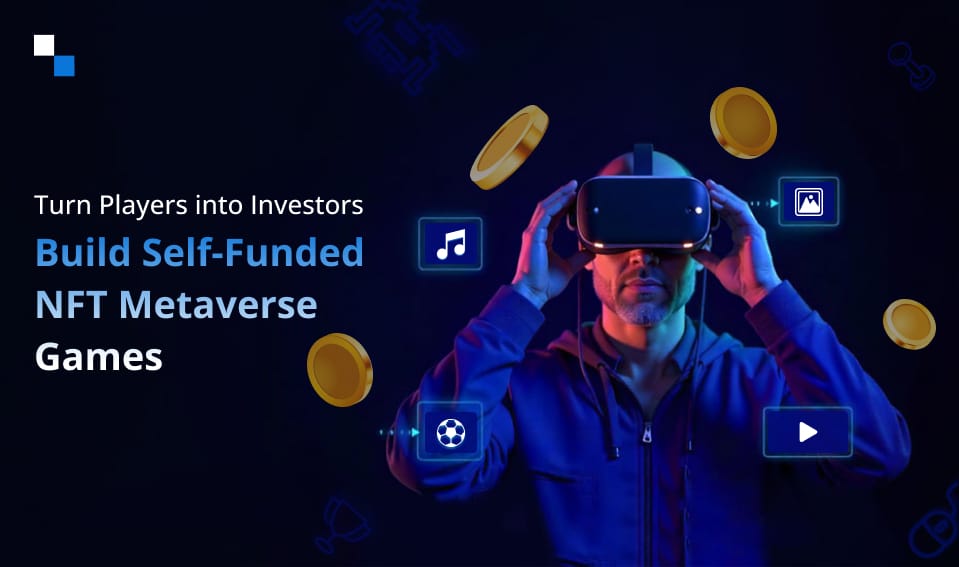
Empowering Financial Stability: A Deep Dive into Stablecoin Development on Solana
November 12, 2024
14 Ways of Using Smart Contracts in the Public Sector
November 12, 2024Choosing the right blockchain for your game is a very delicate decision in terms of the impact on development time and the overall gaming experience. With an expanding blockchain within the gaming industry, blockchain game developers have a myriad of options, with each holding different levels of features and allowances.
This blog explains why it is important to choose the appropriate blockchain for your game and gives out a list of the blockchains ideal for game development projects.
Role of Choosing the Right Blockchain for Your Game
- Performance and Scalability: The speed and capacity of transactions vary from one blockchain to another. It is essential that a platform has a tendency to handle large transactions without delay, especially when it comes to multiplayer environments, without which enjoyment from blockchain game development is riddled.
- Cost Effectiveness: Transaction fees vary between the different blockchains. The more affordable transaction fee will result in higher engagement on a platform as the cost for completing in-game transactions for the player will be lower.
- Security: The integrity of every blockchain game development company is paramount. A secure blockchain protects players’ assets and data, thereby creating an environment that assures users that their hard-earned time and money spent in it are reliable.
- Ecosystem Support: Having a solid community and ecosystem of developers provides developers with the necessary resources, tools, and support needed to build and maintain games.
- User Experience: The choice of blockchain can directly influence gameplay mechanics such as ownership and trading of assets. A well-suited blockchain enhances user experience using features of decentralized ownership of in-game items.
Best Blockchains to Use for Blockchain Game Development Projects
When it comes to blockchain game development, the platform choice becomes critical. Each blockchain has unique features, benefits, and its own trade-off. Which blockchain to use determines significant success for your game. Let’s dive into some of the best blockchains for game development, unique attributes, and ideal use cases.
1. Ethereum
Ethereum is one of the oldest blockchain platforms to introduce smart contracts and decentralized applications (dApps) in the world. Over time, its large ecosystem and active development support make it a leading blockchain gaming platform.
Key Features:
- Smart Contracts: Enables every blockchain game developer to offer complex game mechanisms and interactions.
- NFT Support: There are quite a few NFT standards for Ethereum, including ERC-721 and ERC-1155, and thus most games that heavily utilize digital assets prefer to be built on Ethereum.
- Large Community: Many developers and users in a large network provide plenty of resource libraries and other tools to develop a game.
Ideal Use Case: Best suited for those games that require very complex economic systems or where NFTs represent assets.
2. Polygon
Polygon is a Layer-2 scaling solution for Ethereum that accelerates transactions and lowers fees. It has become popular with blockchain game developers who want to create on Ethereum and avoid the high fees on the network.
Key Features:
- Low Transaction Fees: Much cheaper compared to Ethereum, hence accessible for players
- Fast Transactions: Gives quick confirmation times, which becomes pretty important in real-time gaming experiences.
- Interoperability: Native Ethereum integration, tapping into its massive ecosystem while taking advantage of Polygon.
Ideal Use Cases: This is best suited to applications that have a greater throughput at lower cost, especially when targeting users with less demanding needs.
3. Solana
High performance and scalability are some of the blockchain game development aspects that define Solana. Currently, this blockchain is widely featured in the gaming industry due to its ability to perform thousands of transactions per second at minimal costs.
Key Features:
- High Throughput: This blockchain processes more than 65,000 transactions per second, which makes it one of the fastest blockchains currently available.
- Very Low Fees: Transaction costs are very low, often even under a cent; this is also attractive to developers and gamers alike.
- Booming Ecosystem: Solana is creating a growing number of blockchain game development projects and dApps, encouraging true innovation and cooperation.
Ideal Use Cases: Perfect applications will be fast-paced games that require real-time interactions or those with a large number of concurrent players.
4. Immutable X
Immutable X, often leveraged by every blockchain game development company, is a Layer-2 scaling solution tailored exclusively for NFTs on the Ethereum chain. This has been built with instant trade confirmations and zero gas fees.
Key Features
- Zero Gas Fees: The asset trading activities by the players will not incur any transaction fee, thereby enhancing the user experience.
- Instant Transactions: Provides near-instant transaction speeds with the critical aim of holding players in fast-paced games.
- Ethereum Security: Leverages the security of Ethereum, but it has more scalability.
Ideal Use Cases: For NFT-based games where trading and ownership are key components of the game.
5. Binance Smart Chain (BSC)
BSC is the parallel blockchain network to Binance Chain, that runs in parallel with Binance Chain. In blockchain game development, it supports smart contracts with less cost than Ethereum, as well as faster block times than Ethereum.
Key Features
- Lower transaction costs, that are one of the major cost-attractive for developers looking towards minimizing cost.
- The ecosystem is growing rapidly with a numerous number of DeFi projects that can be applied in gaming-based applications.
- It supports tools compatible with Ethereum; this easily attracts a developer migrating from Ethereum.
Best Use Cases: Best for games wishing to embed DeFi applications or who want to cut costs on Ethereum.

6. Avalanche
It is an extremely flexible blockchain platform that allows blockchain game developers to build a bespoke blockchain designed based on the demands. It has very high throughput and very low latency.
Key Features:
- Custom Subnets: You can create isolated subnets by developers with customized rulesets, which will enable a customised-gaming experience.
- Scalability is High: Handles thousands of transactions in one second while having the lowest confirmation time.
- Interoperability with other chains: allows communication among different blockchains and expands the capabilities of cross-platform nature.
Ideal use cases: This feature is especially ideal for developers who need high customization options or those building complex game economies.
7. Base
Base is a Layer-2 product from Coinbase that provides an accessible environment with low fees while utilizing the security of Ethereum.
Key Features:
- User-Friendly Interface: Designed to be developer-friendly and user-friendly, making it simpler to get folks onboard.
- Coinbase Ecosystem Integration: Direct access to a large user base under Coinbase that can greatly enhance player acquisition efforts.
- Low Fees and Fast Transactions: This blockchain game development assures very low fees without losing speed.
Ideal Use Cases: For applications targeting widespread adoption by the mainstream audience when users may have very little exposure to Blockchain technology.
Each blockchain-based platform has strengths and weaknesses, and it is due to these differences that the right decisions can be made by developers in line with their project goals and improve the overall blockchain game development experience. Each of the options presents unique opportunities depending on the needs of the game being developed.
How to Choose the Right Blockchain for Your Next Game
The choice of the right blockchain for your next blockchain game development project can lead to an entire change in the future of your gaming experience. A rapid change in blockchain technology has provided a multi-faceted treasure that gives a lot of unique features and capabilities to developers. There is no scarcity of unique features and capability, and the perfect blockchain improves gameplay, scalability, security, and, above all, cost-effectiveness.
As you embark on this journey, note a few important factors that align with the objectives of your game and target audience. Below are some key points to consider in making an informed choice.
1. Know your Game’s Requirements
Identify the specific needs of your game whether it is transaction frequency, asset ownership, or even gameplay mechanics. It will inform you if you would require NFT, smart contracts, or play-to-earn at your core.
2. Evaluate Transaction Speed and Scalability
Compare blockchains with high transaction speeds that can complete more than one transaction in the shortest time frame possible. In a multi-player blockchain game development environment, this is fantastic to ensure high performance and smooth gaming.
3. Transaction Cost
Compare the costs of gas fees per blockchain. Expensive transaction fees are not very attractive for players who are going to be making multiple transactions in your game.
4. Security Features Evaluation
Choose a reputable blockchain for maximum security. If you ensure your gaming products are secure for your players’ assets, people will be more likely to trust your current and even future offers.
5. Supportive Ecosystems
Review each blockchain’s in-place developer communities and resources. This may give every blockchain game development company some precious utilities, libraries, and other support needed for game development.
6. Customizability and Flexibility
Choose one blockchain, which can be customized based on your game’s singular needs and features. Flexibility in development can also bring a good gameplay experience, and entertainers will enjoy it.
7. Long-term feasibility
Take into account the long-term future of the blockchain that you are to pick on. Pick one that has a roadmap in its long-term development; including adaptability to novel technologies as well as changing player needs.
Making the Right Move
Choosing the right blockchain for your game is not only a technical decision but also a strategic one for the right blockchain to be chosen for your game in order to take the project to the next level. Thoughtful consideration of the unique blockchain game development requirements and the use of the strengths of various blockchain platforms empower an immersive experience that captivates players and stands out as competitive within the market.
Are you ready to begin this journey? Let Antier be your guide! Let’s get in touch today and let us help make your journey across the best blockchain solution for your game. Unleash your project, shake the gaming world, and start your gaming journey with our blockchain game development company today!



